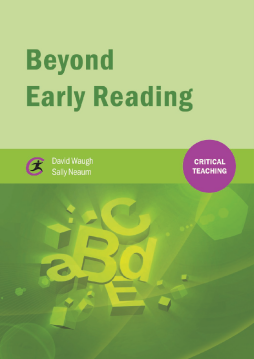
Additional Information
Book Details
Abstract
This is an essential text for primary trainees and teachers. While the focus in early reading is on systematic synthetic phonics, it is important to see the bigger picture and understand that teaching reading is a continuum that involves more much than the mechanics of reading. The book focuses on a range of issues to develop children who can read into children who do read, including extending reading with proficient readers, engaging disengaged readers, sustaining interest in reading in the transition from primary to secondary, and the importance of oracy in reading. Additionally, there is an exploration of the wider context of reading including international perspectives, new literacies and the importance of reading to personal development. Case studies and activities demonstrate practical applications with clear links to the underpinning theory, while critical reflections challenge the reader and encourage deeper thought about the chapter content.
There is such a huge focus on the teaching of phonics at present, both from government and in the media, that it was very refreshing to read a text that goes beyond
phonics. It is so important that our students get a good understanding that phonics is only a very small part of learning to read, and this book offers it to them. I particularly liked how the text was based in research yet
remained accessible to undergraduate students. Case studies brought the research and recommendations alive.
Laura Quinton Maryon, Oxford Brookes University
David Waugh is a former deputy headteacher who has worked in Initial teacher Training (ITT) from 1990 at the University of Hull, where he led the PGCE course and became Head of Department. In 2008 he was appointed as a National Strategies Regional Adviser for ITT. He is currently Director of the Primary PGCE at Durham University, where he is also subject leader for English. He has published extensively in primary English, as well as developing e-learning resources for National Strategies for English, mathematics and mentoring and coaching.
Sally Neaum is a lecturer in early childhood, and teaches primary English in Initial Teacher Training (ITT). She has worked as a nursery and primary school teacher and as an advisor in early years and inclusion. Her doctoral research was in the pedagogy of early literacy. She has published a number of texts focused on child development and on language and literacy in the early years.
In the current climate of phonics, phonics, phonics, it is refreshing to have a book with a broad range of topics which reflects the need to enable children to gain pleasure from books and stories. The case studies demonstrate examples of best practice and put the theory discussed into practice. The two authoritative editors have asked authors to share their knowledge and practice in a critical way, raising questions about theory and practice with the reader.
Elaine Hallet, Institute of Education UCL
I thought that the layout was appealing and the book itself was easy to navigate. There is a comprehensive coverage of teaching reading supported by relevant and recent research. The pedagogies for teaching English are clearly conveyed and illustrated with case studies which serve to marry the theoretical with the practical - something that many undergraduate students will find useful. I would have liked to see a greater reference to the simple view of reading as this helps to set early reading within a framework, one which is explored on all undergraduate ITE courses. The chapter by Clare Warner was particularly engaging as she addresses the most effective ways of encouraging comprehension through the use of research and specific pedagogies but does so in a way that translates easily into classroom practice.
Suzanne Horton, University of Worcestershire
